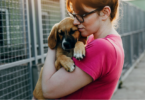7 Lifting and wiggling their eyebrows :
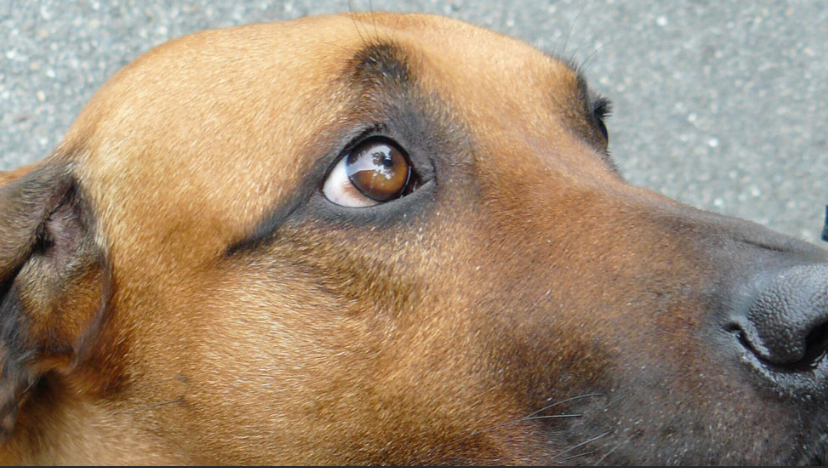
Dogs have been shown to exhibit a range of emotions through their facial expressions, and a recent study in Japan has shed even more light on just how much our furry friends can convey through their brows alone. Researchers introduced dogs to a variety of stimuli, including their owner, a stranger, a dog toy, and an item they didn’t like, and observed the dogs’ facial movements in response. What they found was fascinating – when the dogs saw their beloved parent, they immediately lifted their eyebrows, especially their left. In contrast, when faced with a stranger, there was significantly less movement, except for a noticeable lift of their right brow. It’s amazing to think about just how much our four-legged companions can communicate with us without ever uttering a single word.
8 Acting Very Excited when You Come Home :
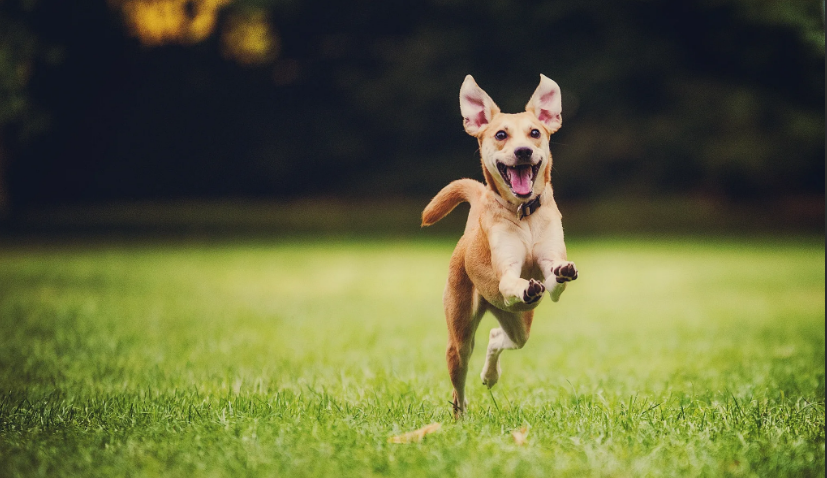
As soon as you step through the front door after being away for a few hours, you feel a rush of excitement. And it’s not because you’re finally home, but because you know what’s coming next. Your furry best friends are about to give you the most heartwarming greeting of all time. It’s an instant mood booster when your pups can’t contain their excitement, and they joyfully jump up and wag their tails at the sight of you. You know this is when you are truly loved by your furry companions. They say dogs are man’s best friend, and this is just one of the many reasons why we hold them dear to our hearts.
9 Shadowing you when you’re sick :
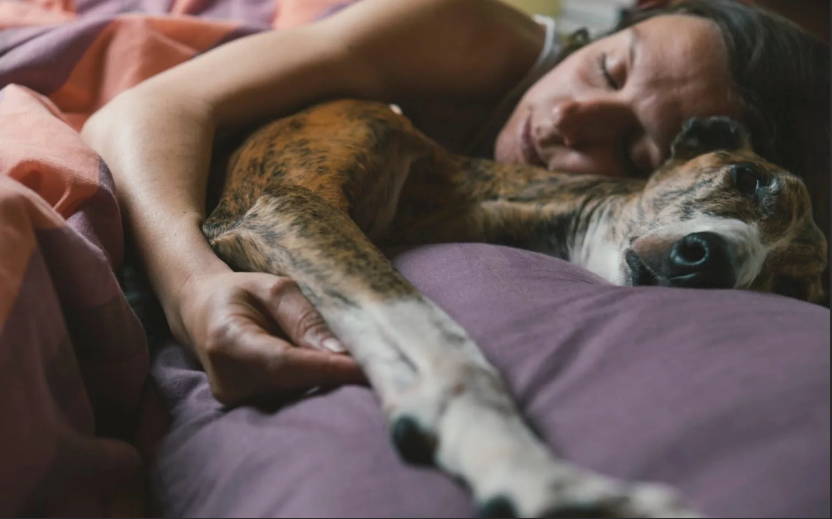
Dogs are truly fascinating creatures, possessing a natural inclination to care for their pack. Their innate social nature is evident in their behavior towards one another in the wild, where they instinctively care for each other’s wounds and watch over each other in times of stress. Even as pets in our homes, dogs maintain this instinct to care for those they consider part of their pack. You may have noticed that when you are hurt or feeling unwell, your dog seems to instinctively know and will often increase their attention and watchfulness towards you. So next time your furry friend licks your wound or simply rests their head on your lap, know that they are instinctively caring for their beloved pack member.
10 Yawning when you yawn :

It’s no secret that yawns are contagious between humans, but did you know that our furry four-legged friends can catch the yawn bug too? A recent study has shown that dogs can indeed also pick up this behavior. While we know that a human’s contagious yawn may be due to empathy and a form of sympathy pains, it’s unclear if dogs experience the same phenomenon. However, it’s possible that a dog yawning at the same time as their human companion is a sign of a strong bond between the two. It’s interesting to note that dogs are more likely to yawn when their owner yawns versus a stranger. So the next time you catch a yawn, don’t be surprised if your pooch does too!
11 Bringing you their toys :
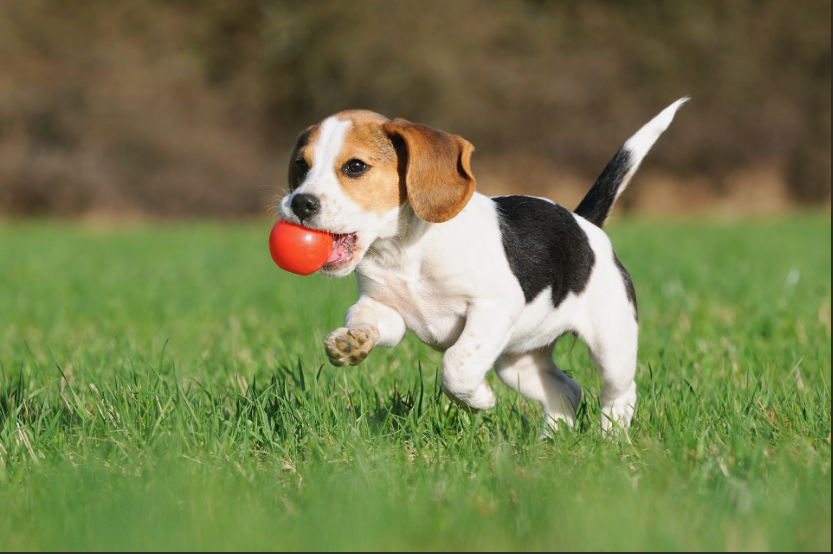
When your furry friend brings you their beloved toy, you can be certain that their love for you runs deep. Dogs are known to be very protective of their toys and treats and would typically keep them away from others. So, if your dog is willing to let go of their precious item and even nudges it towards you, it’s a sign that they trust you and adore you. This simple act of presenting their toy isn’t just about playfulness, but more so about the bond that you share with your companion. It’s a beautiful expression of their love and unwavering loyalty towards you.
Dogs are known for their unwavering loyalty and trust, and bringing their toys to their owners is a prime example of this. When a dog brings you their toy, it’s not only a display of affection, but it also shows their trust in you. It’s not easy for a dog to relinquish something they cherish, so when they do, they’re placing a great deal of faith in you. By bringing you their toy, they’re saying, “I trust you enough to play with this and take care of it.” More than that, it’s a sign of loyalty. Dogs see their owners as their pack leader, and bringing you their toy is a way to show how devoted they are to you and how willing they are to protect you.
There’s something truly heartwarming about the sight of a dog bounding towards you, tail wagging, toy in mouth. But did you know that this simple act of play is actually much more than just a fun game? It’s a powerful expression of your dog’s love and affection for you, a demonstration of the trust and loyalty they place in your relationship. Whether it’s a tattered stuffed animal or a squeaky tennis ball, the toy in your dog’s mouth represents more than just a moment of fun – it’s a tangible symbol of the special bond you and your pup share. So the next time your furry friend eagerly offers you their favorite toy, take a moment to appreciate this precious reminder of the joy and love they bring into your life.
12 Calmly watching you leave :

The bond between a dog and its owner is one of the strongest and most beautiful relationships in the animal kingdom. Many dog owners experience the heartbreaking challenge of leaving their furry companion behind for hours or even days at a time. But what happens when a dog watches its owner leave without any signs of distress? While it may seem like the dog is indifferent or lacks affection, in reality, this calm behavior is a true testament to the trust and confidence the dog has in their owner. By exhibiting this behavior, the dog is essentially saying, “I know you’ll be back, I trust you and our bond, and I have a safe and loving home to return to.” It’s a true display of love and devotion, even in the absence of physical contact.
Dogs are truly remarkable creatures. Their loyalty and companionable nature are some of the many reasons why they are cherished by so many. However, dogs that calmly watch their owners leave are particularly noteworthy. This behavior is a testament to their independence and self-assuredness. Such dogs are comfortable being on their own and have developed coping mechanisms to handle temporary separations. This behavior is often observed in well-adjusted dogs that have been raised in a loving and stable environment. They have learned to trust their owners and feel secure even when alone. Furthermore, they respect their owner’s boundaries and understand that they cannot always be by their side. Thus, by calmly watching their owners leave, they show their ability to cope with temporary separations and demonstrate their acknowledgment of their owner’s independence.


